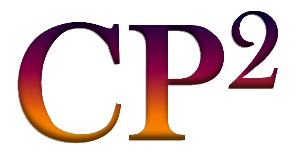The Business of Writing: Pen Names — Guest: Kathryn Goldman

One of the things we’ve talked about here is the struggle we sometimes face as artists to handle the business side of writing. While some of us might have business sense or experience, not all writers do.
However, I don’t want that lack of business knowledge to hold any of us back. That’s why I’ve shared advice and guest posts on how to create a business plan, think like an entrepreneur, or even start our own writing-related company.
That last post linked above was written by my guest Kathryn Goldman, an intellectual property attorney who helps authors protect their work and think like business people. In fact, she’s designed a whole program to step artists (like authors and others) through their options for protecting their hard work so they can make more money from everything they do.
Today, she’s sharing insights from one aspect of her program, focusing on the business considerations for using pen names in regards to copyright. Please welcome Kathryn Goldman! *smile*
(Note: Some of this post might apply to international authors, but the specifics are focused on U.S. copyright laws. Please consult local experts for more information on laws in other countries.)
*****
Mastering the Details of a Creative Career
Writers are constantly striving to improve at their craft. The skills of an author are never fully developed. There is always more to learn about character development, plot arcs, word selection, and editing, to name just a few of the things that occupy your mind as you create, write, and revise your story. Many of those things you learn right here on Jami’s blog.
There are times when mastering your craft can seem overwhelming and you have to dig deep to find the enjoyment in your art. But when you do, when you find that flow and uncover the contentment of creation, you discover that there is still more to learn and to do to make your work tangible in the hearts and minds of your readers.
The discrete parts that surround the business and legal practicalities of raising your creative work up from a newborn on paper to a fully formed entity in the world of readers can also be overwhelming.
The Business Aspects of Writing Can Be Overwhelming
There are droves of details that go into making your work real outside of your computer. Details like how do you protect your story and your ideas once you share them with others, or how you monitor whether your work might have been pirated, or what is the appropriate action to take if your work has been copied.
These pieces of the puzzle can become overwhelming when all it is you want to do is to share your work and be compensated for it fairly with an eye towards making a living by being a creative professional.
While they can seem daunting (especially after you’ve just completed or are still working on the work itself), these details can be easily mastered and controlled by you right in your workflow while you prepare your creative work, when you launch it, and when it lives out in the world.
The problem is that there are so many particulars to attend to, so many aspects surrounding the production of a commercially successful book that it’s hard to know what they all are, let alone what to focus your energies on, what to spend time trying to understand, and what can be set aside for later.
Sometimes, not having answers to these questions—what is important and worth being concerned about or what can be set aside to worry about later—can cause a writer to freeze in her tracks. It’s a case of there’s so much action to take that she takes none at all.
How to Manage the Overwhelm
The solution to this sense of overwhelm is to break the problem down into manageable pieces.
There is a saying, I don’t know who said it, but it goes like this, “How do you eat an elephant?”
“One bite at a time.”
I’ve designed a framework strategy complete with a blueprint to help creative professionals gain mastery over their creative careers. It’s called CP²: Content Protection for Creative Professionals.
This post is an example of one element in that framework. With it, I’d like to help you take one bite out of that practical, legal, and logistical elephant that prevents writers from becoming successful authors.
I’m going to discuss how to protect your work in the Copyright Office using pseudonyms effectively so you can build a brand, protect your identity (if that is a goal), and create lasting value in your work.
Mastering the Art of Using a Pseudonym
(NOTE: This discussion is limited to works created after 1977. The copyright law changed with the Copyright Act of 1976. For those of you who have been creating work since you were young ‘uns, the rules are different for work created before 1977.)
- If you are a person, as opposed to a company, and you apply for a copyright registration using your real name, then your copyright lasts for your lifetime +70 years.
- In the case of a company when a work is created by an employee, the copyright lasts 95 years from the date of publication or 125 years from the date of creation whichever occurs first.
The reason for the difference is that corporations don’t die. They may go bankrupt, dissolve, or otherwise disappear, but the “lifetime” of a corporation or company may be infinite.
To use the lifetime of a corporation to measure copyright would mean that the copyright in a work in which a company is the author would never expire. The work would never pass into the public domain. This would be an unfair advantage to corporate authors.
Copyright for Pen Names
If you file an application for copyright registration anonymously or using a pseudonym without revealing your true identity then the copyright lasts for 95 years from the date of publication.
You can always update the registration with a later filing. You can let the copyright office know who you truly are and potentially get the benefit of a longer copyright period.
For example, assume an author wants to file a copyright registration today using a pseudonym without identifying herself. The copyright in her work will expire in 2111. Let’s say she’s 28 years old today. If she changes the registration sometime before she dies by identifying herself to the Copyright Office, and she ends up living until she’s 80, then her copyright will expire in 2138. That gives her heirs 27 more years to monetize her bequest to them. That could be significant if there are licenses generating income from that work.
The key here is that you can change your mind about using a pseudonym. What might work for your plan today may not be necessary tomorrow. But if you do change your mind, you have to change the registration and alert the Copyright Office to your true identity before you pass on to the great beyond.
When is a Pseudonym Not a Pseudonym?
What if your name is Robert and you want to publish your work using the name Bob, is that considered a pseudonym?
Not really. My recommendation in situations like this is to use “Bob” on the cover of your book and in your marketing but to use your legal name in the registration and on the inside of the book with the copyright notice.
Copyright becomes inherited property and you don’t want there to be any question about what it is that you own and are passing on to your heirs. It’s always good idea for inherited property to be in your legal name. It makes it easier for everyone involved.
Be the CEO of Your Creative Career
How easy was that? You now have an understanding of pseudonyms work with copyright in less than a dozen (short) paragraphs.
The pathway to a successful creative career is a winding one. Common sense suggests that the writers who are most likely to be successful as independent publishers are those who have been exposed to many different aspects of the indie world.
Success isn’t just about writing a great story. Instead, it’s about accumulating diverse skills related to the vastness of the creative business and legal world. Understanding how to use a pseudonym is just one of those skills.
*****
 Kathryn Goldman is an intellectual property attorney who wants you to become the CEO of your creative career. She has built a framework strategy called CP²:Content Protection for Creative Professionals to help creative professionals reach that goal, one manageable step at a time.
Kathryn Goldman is an intellectual property attorney who wants you to become the CEO of your creative career. She has built a framework strategy called CP²:Content Protection for Creative Professionals to help creative professionals reach that goal, one manageable step at a time.
She invites you to download the FREE CP2 Blueprint for an overview of the strategy.
*****
Thank you, Kathryn! I appreciate you looking out for authors with advice and insights on how to protect ourselves.
Like Kathryn said, learning everything we need to from a business perspective can be overwhelming. I’ve definitely fallen into the “I don’t know where to start, so I won’t do anything” trap on occasion.
Obviously, that’s not a great strategy, no matter how we define success. But breaking a big project into smaller chunks can help, and for the business side of writing, that means learning one aspect of business matters at a time.
For this post, Kathryn shared some of the legal considerations for pen names. Put together with what I’ve written before about some of the reasons we might want to use pen names, from privacy to branding and being Google-able, and we start to get a fuller understanding of this piece of the big overwhelming picture.
Once we understand enough of those information chunks, hopefully we’ll feel less overwhelmed and ready to take control for however we define success. Even if money isn’t our primary goal, we likely still need income just to pay for releasing a good quality book. The more we learn about business and our options for protecting our work, the more we might succeed at keeping as much of our income as we can. *smile*
Does dealing with the business side of writing feel overwhelming to you? Do you usually have more success with projects when breaking it into smaller chunks? What aspect of the business side of writing do you struggle with the most? Have you considered using a pen name, and if so, did this answer any of your concerns? Do you have any questions for Kathryn?
(Some links in this post are affiliate links. These links do not suggest a recommendation of the associated products or services.)
Pin It

[…] these days, and there’s a lot of important minutiae to understand. Kathryn Goldman explains the legalities of pen names and copyright, while David Kudler demystifies the HTML of […]